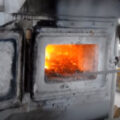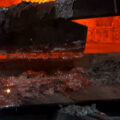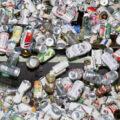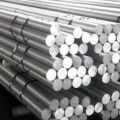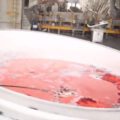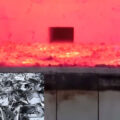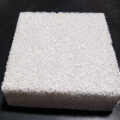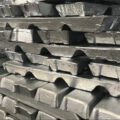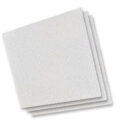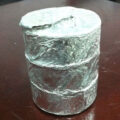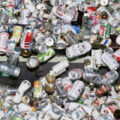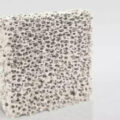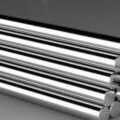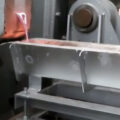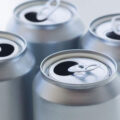Recycled scrap aluminum includes metals from scrap metal products, which are collected and used to make other metal products. For example, used beverage cans (UBC) waste is metal collected from used beverage cans and similar products, which can be recycled and reused in other metal products. UBC aluminum scrap is usually a mixture of various aluminum alloys (for example, different alloys used for can bodies and cans), and often contains foreign matter such as rainwater, beverage residue, organic matter (such as paint and laminated film), and other materials.
Before melting UBC waste, it can be crushed, degreasing or painted, and then used as a liquid metal raw material for casting new metal products. Due to the presence of impurities and unbalanced alloying elements in the liquid UBC metal, it is necessary to treat the liquid UBC metal before casting to remove undesirable elements or to mix the liquid UBC metal with a sufficient amount of new primary aluminum. Similarly, recycled waste from other sources may have relatively large amounts of impurities and/or unbalanced alloying elements.
The presence of a sufficient amount of trace elements in the liquid metal used to cast metal products (such as metal strips) can adversely affect the properties of the metal product, such as strength and formability. In addition, impurities and elements present in UBC scrap and similar recycled scrap may cause unsuccessful and even dangerous results during the casting process, such as the formation of cracks during the solidification and/or subsequent cooling of the metal product. The formation of cracks at these stages can render the casting unusable, and in some cases can lead to casualties and property damage.
In addition to thermal cracking, the use of alloys with high cyclic content also requires consideration of changes in iron, manganese, and silicon content. Since these elements are extremely difficult to remove, their existence is mainly restricted to prevent or reduce the pollution of the waste stream. Usually avoid the modification of these components, because it can change the size and type of the intermetallic phase, which will translate into deviations in certain mechanical properties.
Therefore, the current technology of using recycled waste (such as UBC scrap) to produce certain metal products, especially those metal products that must-have material properties within certain specifications, are very expensive in terms of time, space, and energy (for example, from which Removal of impurities) liquid UBC metal or a large amount of post-casting process and treatment) or the need to use a large amount of new material (for example, by diluting the liquid UBC metal with a sufficient amount of new metal).
Metal casting can melt recycled aluminum into liquid metal. An alloying element is added to the liquid metal to form a modified liquid metal, and the alloying element includes magnesium, silicon, or copper. Casting may include continuous casting of modified liquid metal or direct cold casting of modified liquid metal. Recycled aluminum cans include used beverage can waste, which contains a mixture of recycled metal from the can and the can body. In some cases, the modified liquid metal includes at least about 60% recycled aluminum. The modified liquid metal may contain a hydrogen content of 0.25 mL/100 grams or less. AdTech’s online degassing and filtering equipment can reduce the hydrogen content and other impurities in the molten aluminum, making the recycled scrap aluminum purer.

